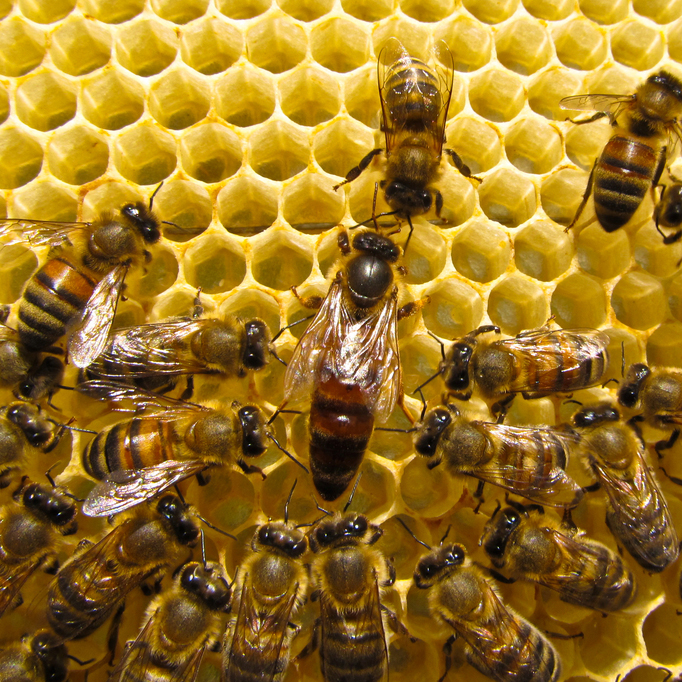A new study has found neonicotinoids, the world’s most commonly used insecticide, cause queen honeybees to lay as much as two-thirds fewer eggs,
 jeopardizing the health and stability of entire bee colonies. The research, conducted by scientists at the University of Nebraska-Lincoln and the University of Minnesota, was recently published in the journal Scientific Reports. “The queens are”¦ the only reproductive individual laying eggs in the colony,” said lead author Judy Wu-Smart. “If her ability to lay eggs is reduced, that is a subtle effect that isn’t (immediately) noticeable, but translates to really dramatic consequences for the colony.” The scientists also found colonies exposed to imidacloprid, a type of neonicotinoids, collected and stored less pollen than insecticide-free colonies, and removed just 74 percent of mite-infested or diseased pupae that can infect the entire hive, compared to 95 percent removal by unexposed bees.
jeopardizing the health and stability of entire bee colonies. The research, conducted by scientists at the University of Nebraska-Lincoln and the University of Minnesota, was recently published in the journal Scientific Reports. “The queens are”¦ the only reproductive individual laying eggs in the colony,” said lead author Judy Wu-Smart. “If her ability to lay eggs is reduced, that is a subtle effect that isn’t (immediately) noticeable, but translates to really dramatic consequences for the colony.” The scientists also found colonies exposed to imidacloprid, a type of neonicotinoids, collected and stored less pollen than insecticide-free colonies, and removed just 74 percent of mite-infested or diseased pupae that can infect the entire hive, compared to 95 percent removal by unexposed bees.

A queen bee surrounded by members of her colony.